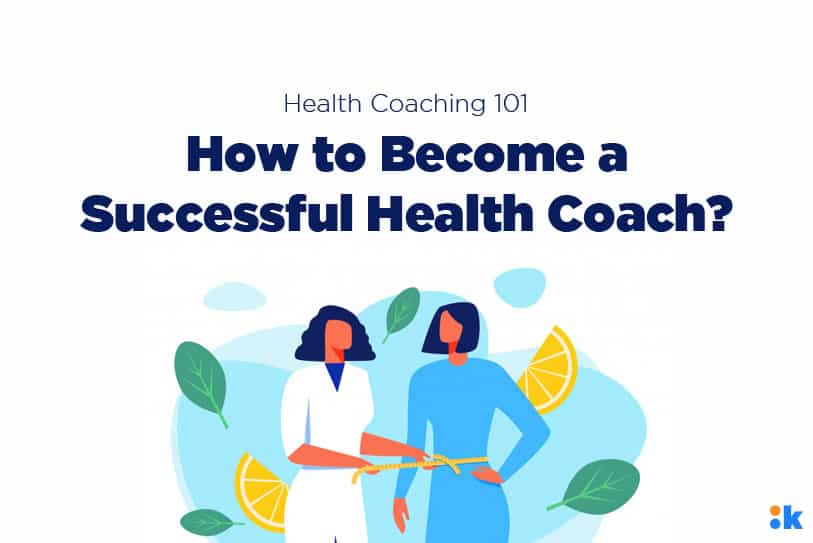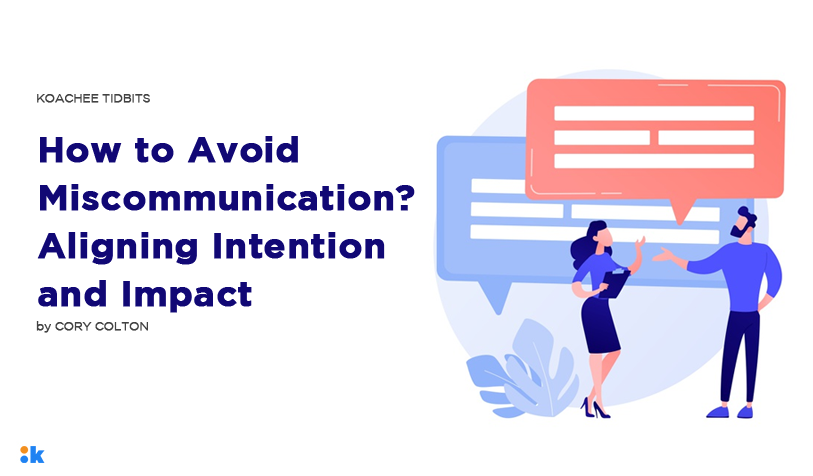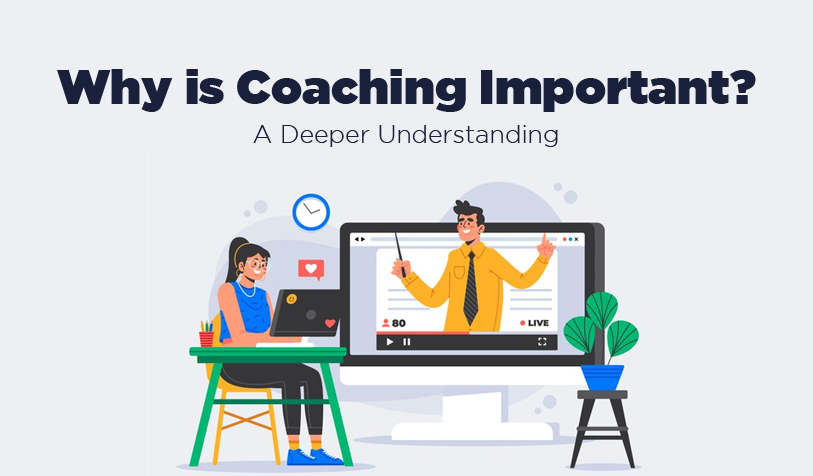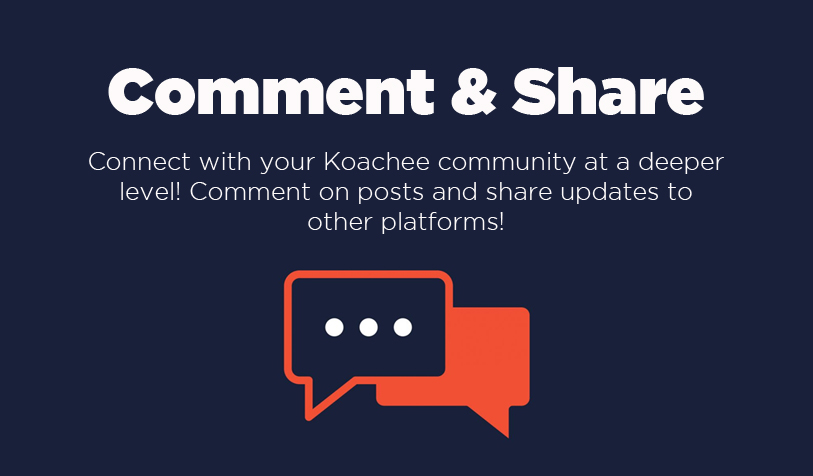Health Coaching 101: How to Become a Successful Health Coach?
According to the research conducted by MarketData, the health coaching industry is expected to grow to $7.85 billion by 2022. As we begin to understand the importance of health and its direct impact on happiness and fulfillment, the demand for health coaches grows simultaneously.
As of December 2019, there are 121,000 practicing health coaches, in the United States alone. Although it may be easy to misinterpret health coaches as physical fitness trainers, we are going to dive deep into understanding what health coaches do, and how you can become one.
What Do Health Coaches Do?

By definition, a health coach works with clients to achieve health goals through a tailored diet and nutrition plans concentrating on the roots.
Whether your wellness goal is to lose weight or to manage a pre-existing medical condition, a health coach helps with maneuvering around it by focusing on the root cause of these concerns. Unlike doctors, health coaches are often found aiming to bring a lifestyle change instead of prescribing medicine.
During the process, clients also find their purpose, and the ability within themselves to transform their life.
Health coaches are recognized for taking holistic approaches with their clients for their problems. A holistic approach is to use a bird’s eye view when it comes to the client. For instance, if you hire a health coach to lose weight, a holistic health coach would revisit the client’s entire history to carve out a strategy that works for them.
When it comes to health coaching, no two strategies are the same. As a result, a lot of health coaching sessions happen one-on-one. Since health coaches are likely to be dealing with different bodies, medical histories, and environments.
How to Become a Health Coach?
Like any other form of coaching, health coaching is a rigorous process as well. Although there is no set path to becoming a health coach, there are several ways that lead up to becoming a successful holistic health coach.
1. Research Health Coaching
If you are interested in healthy living and wellness and are actively seeking knowledge about fitness and nutrition, health coaching may be the right career for you. Although being health conscious is not a pre-requisite for becoming a health coach, to make the decision, it is important to do your research.
One of the first places to start would be health coaching blogs to get a fair idea about what health coaching is. Once you gain some insight, we recommend you find some health coaches online on Instagram and LinkedIn to get a sneak peek into their daily activities.
More so, part of the research would also include learning about the different certifications you can get to become a health coach.
2. Get Certification
Since health coaching is an unregulated industry, anyone can become a health coach, with or without a certification.
However, to win more clients and build credibility, a certification puts you on the path to success.
If you are looking for health coaching certifications, we have shortlisted some options for you.

- IAWP: IAWP’s Health Coaching Certification is a 6-month long certification course which guides you through understanding health coaching, coaching methods, and provides you with a business breakthrough system.
- AFPA: AFPA’s Holistic Health Coach Certification provides 100% online courses for only $1,599. This certification is extensive and walks you through all areas of health coaching, including, physiology, nutrition essentials, and best practices.
- Duke University’s Integrative Health Coaching: Duke University’s Health Coaching program is an 18-week long course for $4,440. The course helps you gain practical experience in health coaching with instructor-led training.
Although certifications may not be essential to become a health coach, they help being trusted by your clients.
3. Find a Mentor
Finding a health coaching mentor can help in overcoming initial barriers that you may face as a health coach. With meaningful advice from the mentor, you build the tendency to be resilient and be capable to face hardships.
Although, with a mentor you need to learn to fight your own battles, a mentor will be able to guide in you in the right direction when you need them to.
In the health coaching industry, an alumnus of the certification course you are interested in can be a great mentor. If you are seeking to jump into the industry without a certification, you can seek friends or other professionals who are currently in the health coaching space.
4. Practice Sessions
As a health coach, you would like to be paid for their services, it is always a good idea to give out free sessions. These practice sessions can help you grasp a stronger grip on your services. From asking relevant questions, and building a strong relationship, you get a great understanding of it all.
With every session, you would require a consistent tone, and strategy and practice sessions can help develop a consistent process.
5. Build a Business Plan
If you have your health coaching certification, you have found your mentor, and taken a few practice sessions, now it is time to develop a business plan, to transform your passion into a business.
A few important questions to ask before building a business plan are:
- What kind of clients would I like to have?
- Would I be able to commit to multiple sessions?
- Should I offer discounts to recurring clients?
- Should I specialize in a particular niche?
Once you have answered all the questions, you should streamline your business plan. As you move forward with it, you will get a thorough understanding of how you should conduct your business.
6. Market Your Health Coaching Service
In our recent guide, How to Market Your Coaching Business, we provide marketing strategies in detail.
Social media is an effective tool for health coaches, especially, Instagram. Posting content regarding your success as a health coach on social media is always a great idea. Transformations that you have helped achieve assist prospects to make decisions.
More so, content marketing is often under-utilized as a strategy when it comes to coaching services. Having valuable blogs or engaging videos on your website can help clients find answers to crucial questions, and in turn, build trust in your services.
Marketing is an intensive process, but with a well-thought-out strategy, focusing on important areas, you are likely to generate amazing results.
Online Health Coaching
One of the leading trends in the coaching industry today is virtual coaching. Over the past few months, with COVID19 ruling our lives, coaches have explored the world of online coaching even more, and as the data suggests, it is working.
Online coaching is the use of electronic devices to connect with your clients and virtually conduct coaching sessions, and benefits of online coaching are unmatched, so far.
More so, a platform like Koachee, are giving online coaching a new recognition. Koachee is an online coaching platform that helps connect coaches with potential clients looking for coaching services in areas like life, health, and business.
Conclusion
Analyzing the data for the health coaching industry, we know it is here to stay, and with individuals gaining awareness for better health, the demand is constantly increasing.
Health coaching can be intensive as you are helping people with living a better life but success in the health coaching industry does not only come with better financial value but also peace of mind.







